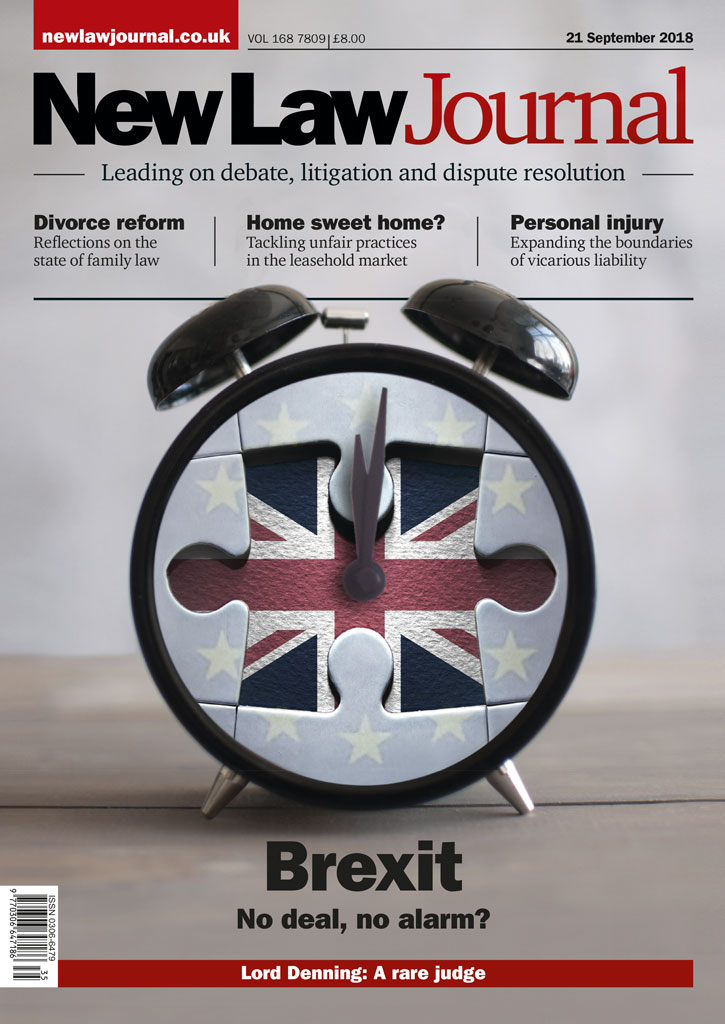
Lord Denning was a unique personality who left an indelible mark on English law; but there was more than one side to his character, says Geoffrey Bindman QC
Innovation, simplification & automation: how tmgroup is embracing the new digital Local Land Charges Register
Veronica Cowan puts the relationship between conveyancing solicitors & professional indemnity insurers under the spotlight
Rawdon Crozier examines the challenges of modern leasehold conveyancing
Vijay Ganapathy rounds up some critical cases on vicarious liability, damages for fear, independent contractors & causation
Nicola Tager writes on the legal & practical complexities of establishing parity in parental leave
Deal or no deal, government promises Brexit won’t affect workplace rights: Charles Pigott examines the evidence
It is time for ministers to join the judiciary in recognising the realities of family life in 2018, says Graeme Fraser
Government proposals include an end to fault-based divorce
MOVERS & SHAKERS

NLJ Career Profile: Ken Fowlie, Stowe Family Law
Ken Fowlie, chairman of Stowe Family Law, reflects on more than 30 years in legal services after ‘falling into law’

Jackson Lees Group—Jannina Barker, Laura Beattie & Catherine McCrindle
Firm promotes senior associate and team leader as wills, trusts and probate team expands

Asserson—Michael Francos-Downs
Manchester real estate finance practice welcomes legal director







